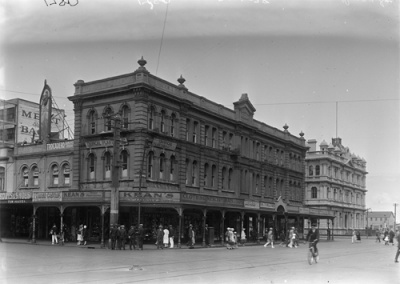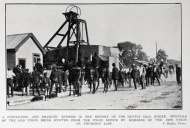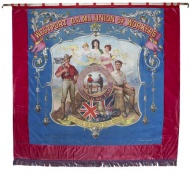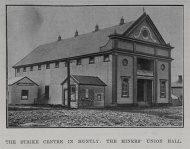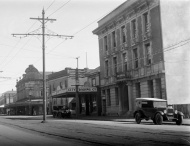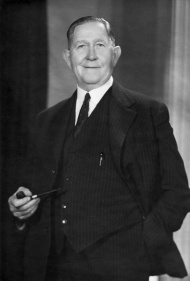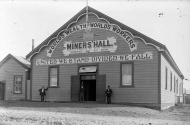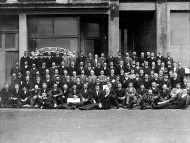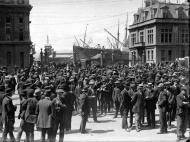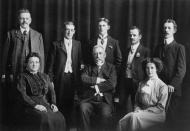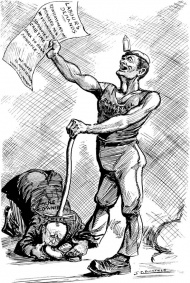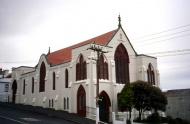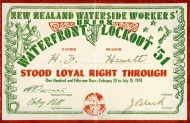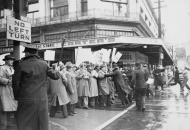Events In History
-
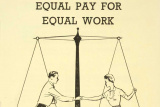 20 October 1972Equal Pay Act passed into law
20 October 1972Equal Pay Act passed into lawThe legislation aimed to end the gender pay gap in the private sector, following earlier legislation which addressed the pay gap for the public service. Read more...
-
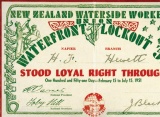 27 February 1951Troops deployed in waterfront dispute
27 February 1951Troops deployed in waterfront disputeThe waterfront dispute of 1951 was the biggest industrial confrontation in New Zealand’s history, lasting for five months, from February to July. At its peak, 22,000 waterside workers and other unionists were off the job. Read more...
-
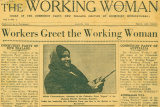 22 October 1934National Conference of Working Women Report approved
22 October 1934National Conference of Working Women Report approvedThe first working women’s conference aimed to link women with working-class organisations, and was supported by the Communist Party of New Zealand. Read more...
-
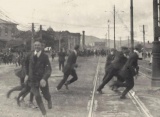 5 November 1913Battle of Featherston Street
5 November 1913Battle of Featherston StreetThe ‘Battle of Featherston Street’, in downtown Wellington, saw some of the most violent street fighting of the 1913 Great Strike. Read more...
-
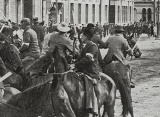 24 October 1913Violence flares on Wellington wharves
24 October 1913Violence flares on Wellington wharvesViolent clashes between unionised waterside workers and non-union labour erupted two days after Wellington’s ‘wharfies’ held a stopwork meeting in support of striking shipwrights. Read more...
-
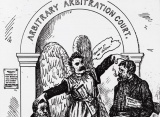 31 August 1894Arbitration Act becomes law
31 August 1894Arbitration Act becomes lawThe Industrial Conciliation and Arbitration (IC&A) Act made New Zealand the first country in the world to outlaw strikes and introduce compulsory arbitration. Read more...
-
 12 July 1889First women's trade union formed
12 July 1889First women's trade union formedThe first women’s trade union in New Zealand emerged in the late 19th century in response to poor working conditions in the clothing industry. Read more...
Articles
Labour Day
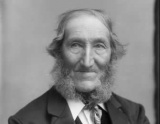
Celebrated on the fourth Monday in October, Labour Day commemorates the struggle for an eight-hour working day, a right that carpenter Samuel Parnell had famously fought for in 1840. Our first Labour Day was held on 28 October 1890, and it has been a statutory public holiday since 1900.
- Page 1 - Labour DayCelebrated on the fourth Monday in October, Labour Day commemorates the struggle for an eight-hour working day, a right that carpenter Samuel Parnell had famously fought for in
The 1913 Great Strike
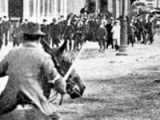
The Great Strike of 1913 was in fact a series of strikes between mid-October 1913 and mid-January 1914. It was one of New Zealand’s most violent and disruptive industrial confrontations.
-
Page 2 – Class war comes to the workers' paradise 1890-1913
History of New Zealand's employment relations, 1890-1913.
-
Page 3 – Outbreak of the 1913 strike
The 1913 Great Strike was sparked off by two relatively small strikes.
-
Page 4 – The 1913 strike in Wellington
Because the strike threatened their livelihoods, rural men were keen to volunteer as special constables.
-
Page 5 – The 1913 strike in Auckland
Watersiders in Auckland began to strike in support of those in Huntly and Wellington.
-
Page 6 – The 1913 strike in the South Island
Although the 1913 strike had its biggest impact on Auckland and Wellington, the South Island's cities and mining towns were also affected.
-
Page 7 – The defeat of the 1913 strike
The seizure of the wharves in Wellington and Auckland greatly reduced the strikers’ industrial power. Similar takeovers by ‘scab’ arbitration unions soon happened in other
The 1951 waterfront dispute
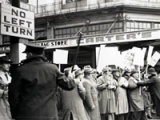
The 1951 waterfront dispute was the biggest industrial confrontation in New Zealand’s history. Although it was not as violent as the Great Strike of 1913, it lasted longer – 151 days, from February to July – and involved more workers.
-
Page 3 – War on the wharves
With New Zealand’s vital export trade at stake when the wharves came to a standstill, the government declared a state of emergency on 21 February.
-
Page 4 – Division and defeat
The watersiders’ militancy had isolated them from most unionists and Walter Nash’s Labour Party Opposition sat uncomfortably on the fence, denouncing government repression but
1947 Greymouth beer boycott

What would it take for West Coasters to boycott their beloved beer? Greymouth hotel-keepers found out in 1947, when an organised attempt to raise the price of beer sparked one of the most effective consumer boycotts ever seen in New Zealand.
-
Page 4 – Industrial action
After the first week of the Greymouth beer boycott it became clear that the Licensed Victuallers' Association (LVA), supported by the breweries, was not going to yield.
Merchant marine
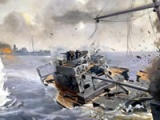
On 3 September New Zealand honours Merchant Navy Day. Here we explore the little-known but vital role played by the merchant marine during the First World War, when these civilian seafarers often found themselves in the front line of the war at sea.
- Page 8 - Politics, patriotism and protestAlthough New Zealand seafarers served in many hostile theatres, some questioned the politics of the
Biographies
-
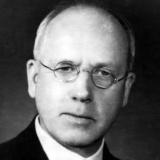 Fraser, Peter
Fraser, Peter
Peter Fraser, New Zealand’s wartime PM, led the nation for nine years. Respected rather than loved like Savage, many experts rate him our finest PM.
Read more... -
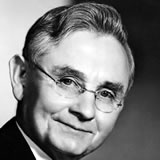 Savage, Michael Joseph
Savage, Michael Joseph
Michael Joseph Savage, New Zealand’s first Labour PM, was probably also it's best-loved. His avuncular image hung in the homes of the Labour faithful for decades.
Read more... -
 Walsh, Fintan Patrick
Walsh, Fintan Patrick
As a leading trade unionist from the 1930s until his death in 1963, Fintan Patrick Walsh established himself as one of the most powerful figures in New Zealand. The ruthless way he dealt with opposition aroused great loathing in his enemies.
Read more...
Related keywords
- womens liberation
- public service
- women in politics
- protest
- domestic staff
- auckland city
- 1913 strike
- huntly
- coal mining
- westport
- workers rights
- unionist
- jim roberts
- teaching
- sonja davies
- runanga
- education
- wellington city
- newspapers
- nightcaps
- merchant marine
- WW1
- conscription
- railways
- WW1 home front
- harriet morison
- voting
- suffrage campaign
- dunedin
- greymouth
- buller
- brunner
- blackball
- lyttelton
- demonstrations
- denniston
- labour party
- red feds
- maps
- strikes
- clothing
- suffrage 125
- alcohol
- drink
- shipping
- church
- religion
- historic places
- waihi
- nurses
- wharfies
- william massey
- peace celebrations
- seddonville
- waterfront dispute
- fintan patrick walsh
- richard seddon
- cold war
- sidney holland
- national party
- MPs
- peter fraser
- prime ministers
- WW2
- conscientious objection
- united nations
- michael joseph savage
- australia
- great depression
- bastion point
- anniversaries
- holidays
- labour day
- samuel parnell
- public holidays
- liberal party
-
Main image: Watersiders’ union offices, Auckland
The watersiders’ union offices were on the first floor of the Gladstone Buildings.

